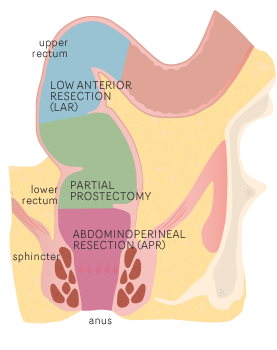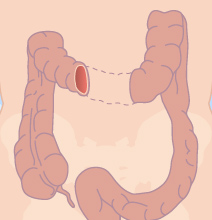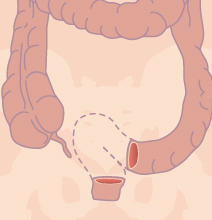Proctectomy
Proctectomy is used for cancers that have spread to the walls of the rectum.
In the past, patients undergoing rectal surgery often needed permanent colostomy, an operation where the upper end of the colon is connected to a bag outside of the body, where food waste is collected.
Today, advances in surgical techniques allow most patients who undergo rectal surgery to avoid permanent colostomy. New techniques can comprehensively remove all tumor tissue, in the rectum and around it, while carefully avoiding damage to the nerves involved in sexual and urinary functions.
The surgery will excise either the segment of the rectum where the tumor is located plus a margin of healthy tissue around it or, if the tumor has spread, the entire rectum.
The nearest lymph nodes are also removed for microscopic analysis in order to understand the disease stage and prevent its spread.
Because the rectum is short (about 6 cm long), the type of surgery depends to a large extent on the size and location of the tumor.
In the following image, we show 3 possible types of surgery:






